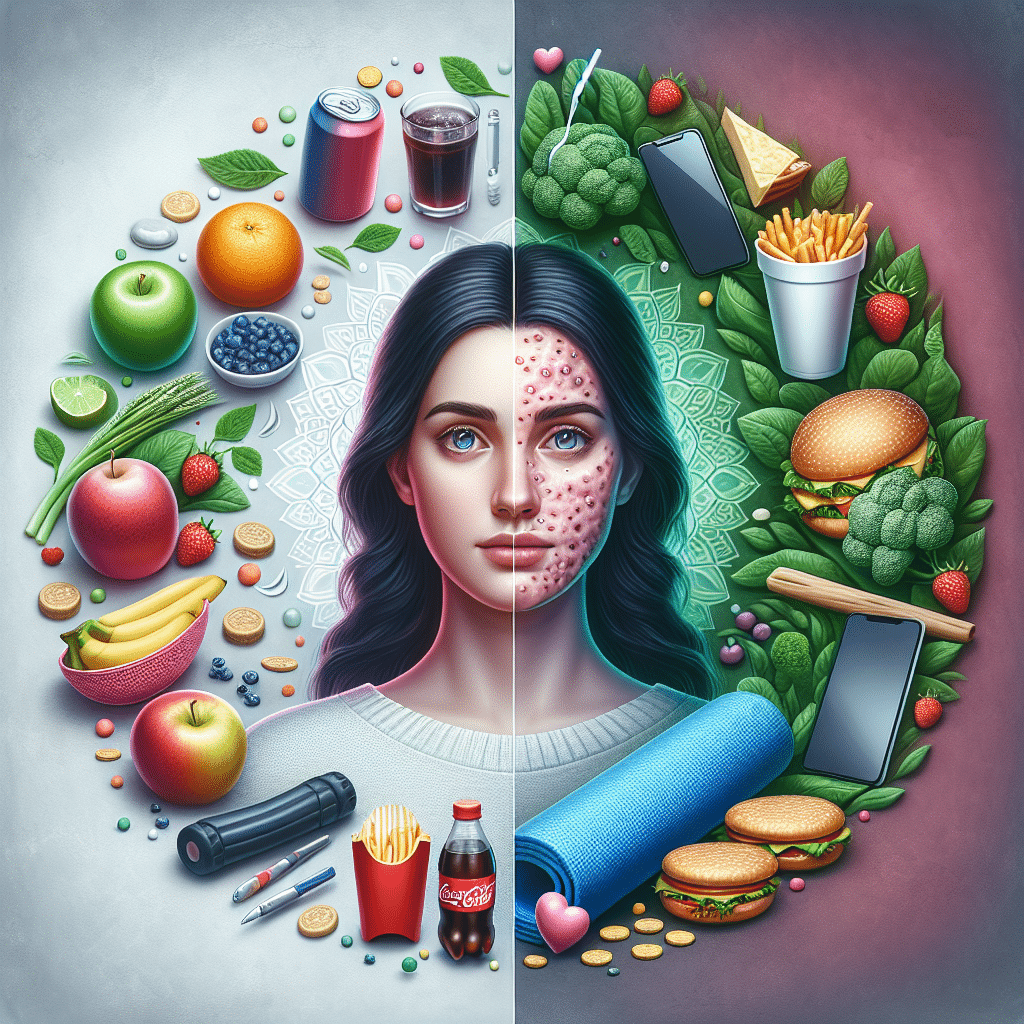How to Cure Acne: The Impact of Lifestyle Choices
Acne can be a persistent and frustrating issue for many. While numerous treatments promise clear skin, the role of lifestyle choices in managing acne is often overlooked. This blog post explores how small changes in your daily habits can significantly affect your skin’s health.
Table of Contents
1. Introduction
2. Understanding Acne
3. Diet and Acne: The Connection
4. The Role of Hydration
5. Exercise and Its Benefits for Skin
6. Stress Management: A Key Player
7. Sleep: The Unsung Hero
8. Conclusion
9. FAQs

Understanding Acne
Before diving into lifestyle changes, it’s essential to understand what acne is. Acne occurs when hair follicles become clogged with oil and dead skin cells. Commonly appearing on the face, neck, back, and shoulders, acne can take various forms, including pimples, blackheads, and cysts. While hormones and genetics play significant roles, lifestyle factors can exacerbate or alleviate symptoms.
Diet and Acne: The Connection
Your diet is a crucial component of your skin’s health. 🍎 Research suggests that foods with a high glycemic index, such as white bread and sugary snacks, can trigger acne by causing spikes in blood sugar and insulin levels. These spikes can increase oil production, leading to clogged pores.
On the flip side, incorporating more fruits, vegetables, and whole grains into your diet can help maintain clear skin. Omega-3 fatty acids, found in fish like salmon and flaxseeds, have anti-inflammatory properties that can reduce acne severity. Consider a balanced diet as a foundation for healthy skin.
The Role of Hydration
Drinking enough water is often overlooked but is vital for overall health and skin clarity. 💧 Dehydration can lead to dry skin, which can trigger excess oil production as the skin overcompensates. Aim for at least 8 glasses of water a day to keep your skin hydrated and to help flush out toxins.
Exercise and Its Benefits for Skin
Regular physical activity is not just great for your body; it’s beneficial for your skin, too! 🏋️♀️ Exercise increases blood flow, which helps nourish skin cells and keep them healthy. It also helps reduce stress, another contributor to acne.
Just remember to cleanse your skin after a workout to remove sweat and bacteria that can clog pores.
Stress Management: A Key Player
Stress can wreak havoc on your skin. 😟 When you’re stressed, your body produces more cortisol, a hormone that can increase oil production and inflammation, leading to breakouts. Incorporating stress-reducing practices like meditation, yoga, or even simple breathing exercises can help keep acne at bay.
Sleep: The Unsung Hero
Never underestimate the power of a good night’s sleep for your skin. 😴 During sleep, your body undergoes repair processes that help heal skin damage. Chronic sleep deprivation can lead to increased stress hormones and inflammation, both of which can worsen acne.
Aim for 7-9 hours of quality sleep each night to give your skin time to repair and rejuvenate.
Conclusion
While acne can be a challenging condition to manage, understanding the impact of lifestyle choices can empower you to make positive changes. By focusing on a healthy diet, staying hydrated, exercising regularly, managing stress, and getting enough sleep, you can significantly improve your skin’s health.
Remember, what works for one person might not work for another. It’s important to listen to your body and find a routine that suits your needs. 🌟
FAQs
Q: Can lifestyle changes completely cure acne?
A: While lifestyle changes can significantly improve acne, they may not completely cure it for everyone. It’s often a combination of lifestyle adjustments and medical treatments that yield the best results.
Q: How long does it take to see improvements in acne with lifestyle changes?
A: Changes in diet, hydration, and stress management can take several weeks to show visible results on your skin. Consistency is key.
Q: Are there specific foods I should avoid to prevent acne?
A: Foods high in sugar and refined carbohydrates can worsen acne. It’s best to avoid processed snacks, sugary drinks, and fast food.
Q: Does drinking more water help clear acne?
A: Yes, staying hydrated can help maintain healthy skin by flushing out toxins and maintaining skin moisture levels.
